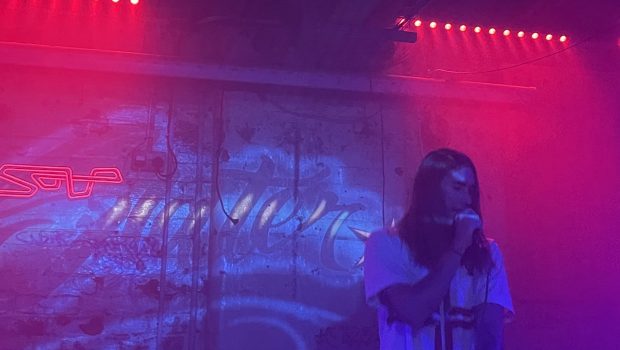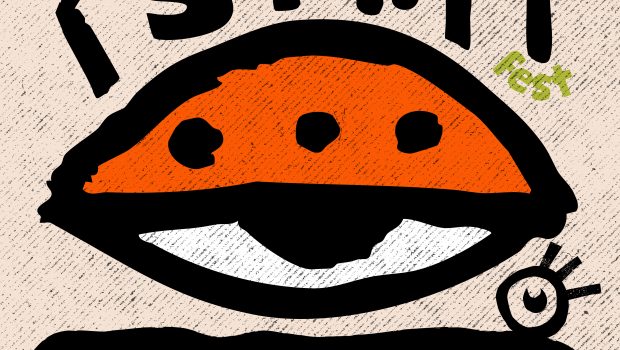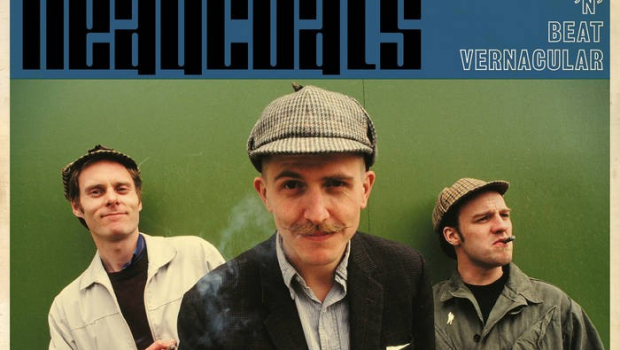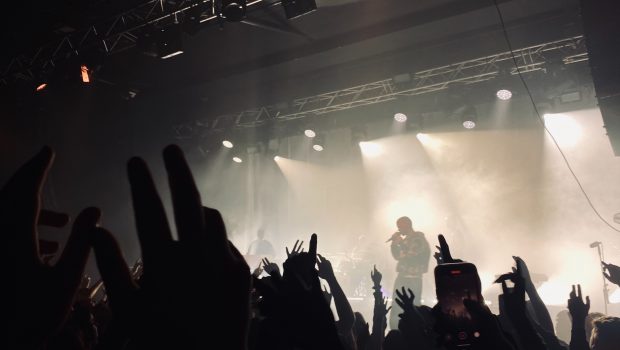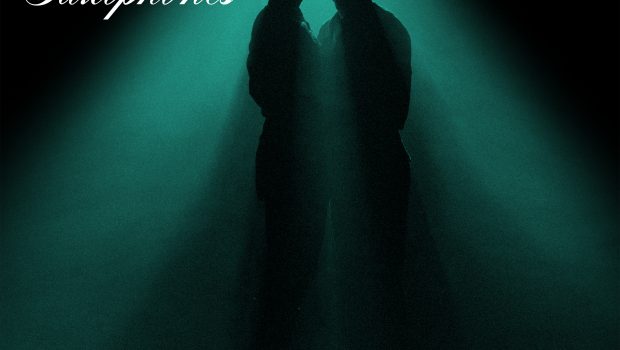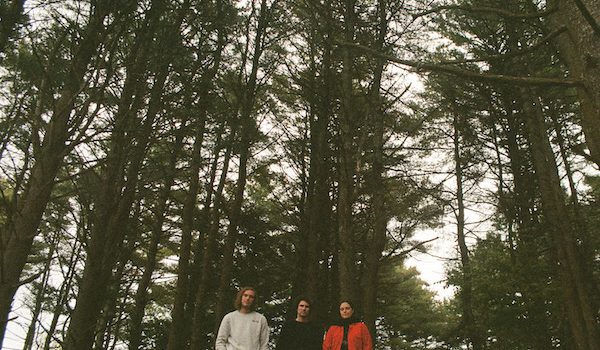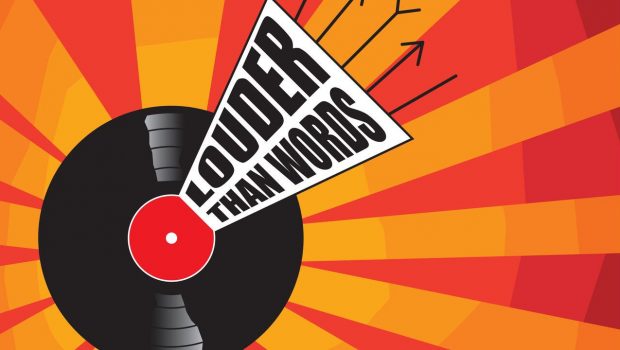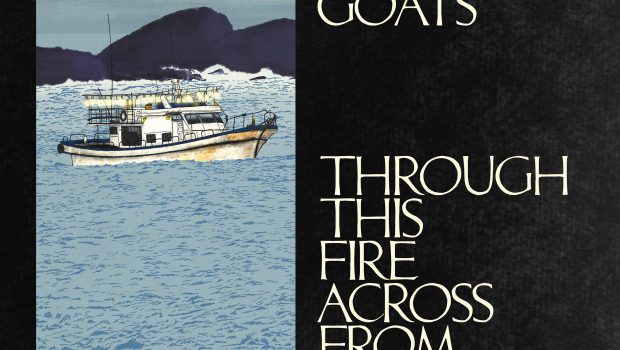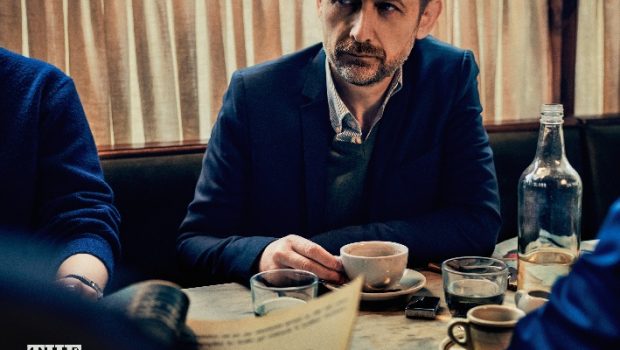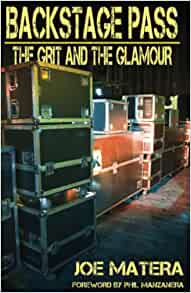 The life of a writer can be a fun but frustrating experience, there’s the endless waiting around at venues, hotels, record label offices, or waiting for the phone call to be answered, yet the rewards almost always make it worthwhile. For writers, meeting or talking to your favourite artists, discovering what’s behind their craft and generally just having a good old natter with them, then conveying that to the world in the form of a piece of writing is the goal.
The life of a writer can be a fun but frustrating experience, there’s the endless waiting around at venues, hotels, record label offices, or waiting for the phone call to be answered, yet the rewards almost always make it worthwhile. For writers, meeting or talking to your favourite artists, discovering what’s behind their craft and generally just having a good old natter with them, then conveying that to the world in the form of a piece of writing is the goal.
Joe Matera has been writing about music since the late nineties as well as being a successful musician both as a session artist and in his own solo career. His new book ‘Backstage Pass: The Grit And The Glamour’ details his encounters with the likes of rock legends such as Lemmy from Motorhead, legendary figures in the world of music including Sir George Martin, and indie icons such as Death Cab For Cutie, as well as the adventures in his own solo career in his native Australia and beyond. Matera manages to convey the sense of excitement in meeting these people, but never loses sight of the fact behind the scenes, they’re still just people, doing a job, even if it is probably the best job on the planet! Busting myths regarding the supposedly glamorous lifestyle of the music journalist and the touring musician was one of the reasons he decided to write the book in the first place.
We caught up with him to find out more about how music writing turned into a career, and the things he’s learned from the musicians he’s met along the way.
The book is called ‘Backstage Pass’ – The Grit And The Glamour’ and you’ve certainly seen it all, from hanging out with the late great Lemmy from Motorhead to P!nk and Death Cab For Cutie. Lemmy certainly seemed to enjoy the rockstar lifestyle whilst still being an approachable, likeable musician, yet your book also points out that away from the stage and the parties, some musicians are really shy and introverted, so was one of your aims to break down the myths that being a musician is some sort of richly glamorous lifestyle?
Yes, it was. To many people, they tend to think that what they see of the ‘public’ image of an artiste and the supposedly life style they lead, is who they really are and how they live in their normal day to day existence. Nothing could be further from the truth. Musicians are a complicated lot, and many times their public bravado and outlandish image is a mask for their insecurities, short comings, shyness and whatever else.
One of your musical heroes is Hank Marvin from The Shadows, and you describe interviewing him in 2007, some people say you should never meet your heroes, and although it sounds like Hank was a perfect interviewee, did you have any reservations at that time, and which questions did you manage to sneak in that were more just for your curiosity as a fan?
I had no reservations when it came to my interview with Hank, though I was nervous prior to the interview because of the fact he was one of my guitar heroes! Interview wise, I was very interested in knowing more about The Shadows classic tracks, the ones I spent years learning to play guitar to in my youth. I wanted to get behind the public Hank and find out what made him tick. He was truly a gentleman, and very deserving of the title of legend. One of my questions I asked him was the story behind Paul McCartney offering The Shadows an early lyric-less version of Here There And Everywhere to record instead of The Beatles. As we now know, McCartney later changed his mind and got The Beatles to record it. Hank told me the story was completely true and proceeded to give me a wonderful account of what really happened. McCartney had come into the studio while The Shadows were in the middle of recording and asked if he could play the band a song he’d written and which he thought would be good for the band to record. Paul played the tune on piano for them, and the band told him they thought it was great, and upon hearing their answer, Paul offered to send it to them on a cassette the following week. But he never did, as he had changed his mind. When a few months later the Revolver album came out, Hank had got himself a copy and was surprise to hear the tune which he recognised was the same one Paul had played to him in the studio that day!
You interviewed the now sadly departed, brilliant keyboard player Ray Manzarek of The Doors, and managed to get him to talk about that famous Miami incident where Jim Morrison allegedly exposed himself on stage. Although he may have been asked that question before and may even have been reluctant to talk about events like that which happened in the past, how as a writer do you feel it’s best to approach such questions to try and get an honest answer, whilst still trying to focus on the music and not the gossip or scandal?
By the time I interviewed Ray I had earned a reputation as a journalist who was not interested in gossip, or after a headline that sells, I was interested in the music and the artiste themselves. And being a musician gave me that extra edge to my reputation too. Ray already knew this and knew he could trust me and that I was genuinely interested in the truth. He opened up to me, and was happy to expand on the whole incident. Plus, I also sensed that he wanted to set the record straight once and for all.
You mention some difficult interview situations (we won’t mention names, you’ll have to read the book!) where the artist is just tired, fed up, or the gig hasn’t gone well. Do you have any safe fall-back questions you can rely on to try and turn a difficult interview around?
In those situations you have to remain calm, logical and understanding. Again being a musician who shares a similar mindset as the artistes I have interviewed, it always helped me to understand those situations better when they happen to arise. And though in those examples I talk about in the book, I tried to remain as understanding as possible, their attitude only tarred their reputations, and also, affirmed exactly what many others had observed about them. Sad but true.
Before you interviewed Sir George Martin in 2002, you state that it took weeks and weeks of research for you to be able to come up with questions you thought would enable him to give a different perspective on his work and views on music. How long do you normally spend preparing for your interviews and was that an exceptionally long research period?
I usually spend many days and nights researching, I am very thorough with my questions, I want to engage the artiste, I want to find something that will connect with them and interest them enough for them to want to open up to me. Who doesn’t get bored being asked the same recycled questions over and over? I find that in today’s music journalism, there is a sense of laziness and disconnection with the artistes’ work, because of the amount of information available at one’s finger times, it’s easy to find a question for the sake of a story or deadline. It’s very hard to find a question that is engaging, interesting and far from the norm. That requires much diligence.
You mention that these days, with the rise of blogs, and social media, everyone who is passionate about music can get their views across, but what do you believe are the essential ingredients for a good feature on an artist?
Passion is one thing, and really connecting with an artist so that they want to open up and share something with you that they may not wish to share with someone else, is another thing. It takes something more than passion. My previous answer says it all.
In the book, you state that the way you got into music journalism was through emailing your favourite bands, once you had access to the internet in the early 90s, and it blossomed from there, leading you into getting your work published in print and being paid for it! Nowadays it’s harder for writers to get their work published, let alone receive payment for it, so what tips would you give to any aspiring writers?
It definitely is harder today more than ever before to make a living, due to the fact of the numerous online outlets and blogs and what not and as mentioned previously, many whom don’t and won’t pay for content. It took me years to get where I am today. You have to earn it and also once you’ve earned it and proven yourself, maybe then, you’ll be lucky enough to live off it completely. My advice is that you have to have 110% dedication to your work, you have to make huge sacrifices, accept it’s a lonely existence and to continue working your second job.
You have a successful solo career yet you have also been a session musician, you’ve worked with many great musicians, including Steve Harley. What did you learn from them in your role as a session musician and what do you feel you taught them?
You are the hired guitarist so you have to give to the artiste what they require, in the way they need it and how they need it. You are there to bring to life their music and vision. I think by being yourself and the giving of yourself to them, that is what you bring to them. They know they can rely on you and that you can deliver, so they will hire you again and again. You have to leave your ego at the door. It’s not about you, it’s about them.
In the book you state “Another important element in being a side-man is the fact they must leave their egos at home.” How do you know when to take centre stage or when you hold back a little when you play live in someone else’s band?
It’s an unspoken agreement, if you’re really on the same page as them, and understand as a true musician, you will know. See my previous answer.
You’ve interviewed many successful musicians as a writer for, as a musician as well as a writer were you able to get any special songwriting tips and if so which ones have stuck with you?
Well, one thing that is constant with all songwriters is that many songs are written first either on piano or acoustic guitar. Whether the band is all electric or some synth-wave band, or even heavy metal you will usually find that they wrote those songs first on an acoustic. I write all my music on acoustic guitar, even my early all electric ‘shredding’ instrumentals such as Slave To The Fingers were written on acoustic! Steve Harley once shared with me a similar secret. “About ninety percent of the songs I write at home are on guitar” he told me before adding. “I’ve got three pianos in the house and whenever I walk past them I will sit down and get ideas or find out what key I’m happiest in. But then I will continue working on them on the acoustic guitar.”
Your own musical career started with you writing instrumental tracks ‘Travellin West’ and ‘Face Off’, and your last album ‘Electric Wire’ was instrumental. Nowadays you’re including more vocals on your songs, as on the new single ‘Inside, Looking Out’, how do you decide which tunes are right for vocals and which should be left alone as instrumentals?
In the early years I was very shy of being a lead vocalist and front man, even though I wrote songs that had lyrics, so I just concentrated on instrumentals until I was encouraged by my wife and others that I should go down the vocal route. So I released Fallen Angel in 2012 as my vocal debut and the reaction and success that song garnered and brought to me, changed the course of my musical career and gave me the confidence to stay on the vocal route for good. The success of that song also allowed me the opportunity to tour Europe. As to how I choose whether it’s an instrumental or vocal tune, it depends on the lyrics, usually if the right lyrics come to me while writing the music, that song will be a vocal song, if for the life of me I can’t seem to come up with any lyrics, then that song will remain an instrumental. Sometimes I will record both an instrumental and vocal version as the song may suit both formats nicely. It’s basically a trial-and-error process.
You have interviewed so many wonderful musicians over the years, would you ever consider a collaborative album with some of them or do you always prefer to write as a solo artist?
Of course, and in fact I have done several collabs of sorts over the years. My most recent one was having Don Powell from ‘70s Glam rockers Slade play drums on my latest single, ‘Inside Looking Out’. I’m currently co-writing and recording a collaboration with English pop-sters The Korgis which will be out sometime in 2022, so stay tuned!
Any more releases or tours planned?
I am always working on new music so will always have new releases coming. During the pandemic I worked on several projects, one was an all electronica-experimental instrumental EP, called ‘The Lone Runner’, a sort of Tangerine Dream meets Massive Attack with a touch of The Orb sounding outing. Lots of piano, synths, beats, acoustic guitars and a plethora of cool sounds. It’s coming out via a German label in the early part of 2022. I’m also shopping a Swedish rock album to interested labels so we will see what happens there. As for tours, I love to tour again, but I think it will be a while before that can happen, or until the world gets back to some sort of normality. I definitely want to return to Europe as I miss the touring life and performing for my European fans who have been there for me and supported me from day one.
Any more books in the pipeline?
I do have enough material for three books, as I kept detailed diaries over the past twenty years, but I guess it all depends on how my first book goes and the response it garners. I’m sure at some point in the future, a second book may happen but for now, I’m too busy working my first book.
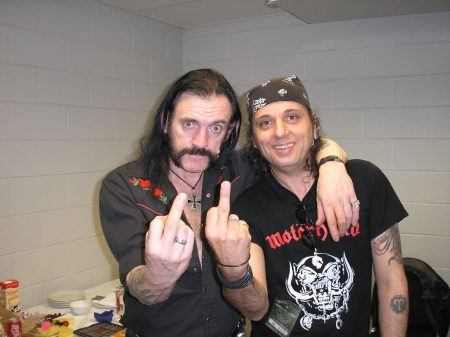
Joe Matera – Backstage Pass:The Grit And The Glamour is out now via Empire Publishing


